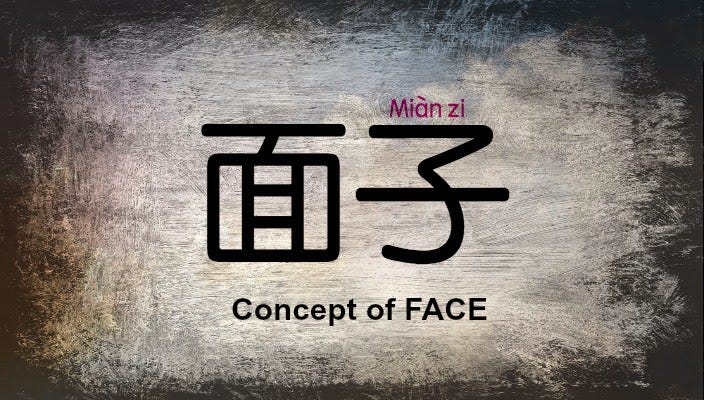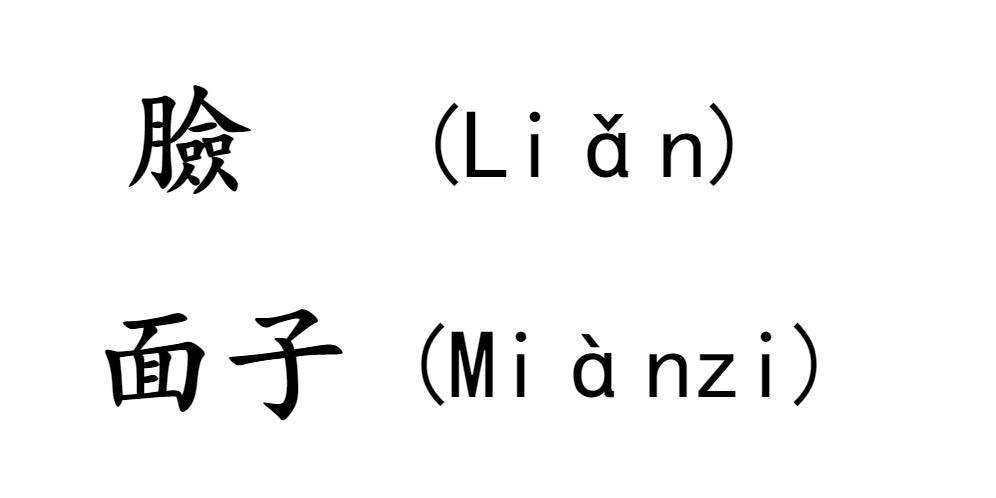Win-win doesn’t mean the same to everyone.
A deeply rooted concept in Chinese culture, face 面子 ( miàn zi) roughly translates to a combination of ‘honour’, ‘reputation’, and ‘respect’.
Lu Xun 鲁迅 one of China’s most influential writers of the 20th century, once described “face” as the “guiding principle of the Chinese mind” (中國精神的綱領). “Face” (面子), he said, is “a word we [Chinese] hear often and understand intuitively”.
Westerners struggle to grasp it. I’m not sure I’m even the person to try and explain it, but I will try here.
It is paramount to understand since this deep rooted way of thinking influences all levels of society and of business in China.
Chinese society values hierarchy, social roles and interpersonal relationships and perhaps that is why “face” plays a key role in social contexts more than in other cultures.
Unlike Westerners who tend to be more direct and blunt, Chinese believe in ‘giving face' – an act of giving deference to someone else – as a show of respect.
Equally important is to make sure you don’t accidentally cause someone to 'lose face'.
There are many subtle intricacies and many uses, here's a quick breakdown:
Having face 有面子 (yǒu miàn zi)
To have gained pride or prestige through some kind of achievementNot having face 没面子 (méi miàn zi)
To look bad or warrant embarrassment, caused by an act (sometimes by others)Giving face 给面子 (gěi miàn zi)
To praise or give deference to someone else to improve/uphold their reputation
Save face 爱面子 (ai miàn zi)
A term describing someone who places high emphasis on preserving their own appearance of respect and dignity at all costs (**Use this with caution though, as it can have a slightly negative connotation with Chinese from regions outside of China.)
Losing face 丢脸 (diū liǎn)
To be humiliated or to suffer the loss of social standing
No face 不要脸 (bù yào liǎn)
An insulting term to imply someone who is acting shamelessly without any scruples or principles
To confuse things even more, notice liǎn and miàn zi in the list above.
Mian zi is a term that can be broadly translated as status, prestige and social position. While lian refers to an individual’s morality.
But 脸 (liǎn) which as a noun literally means one’s physical face. When used like this he “has no lian“, it means he has no sense of morality.
Having lian and having mianzi is not the same thing. One can achieve status, prestige and leverage by disregarding moral standards. One can gain mianzi and at the same time have no lian.
If one loses too much lian, one will probably lose mianzi as a long-term result, because no one will trust a person who has no moral standards.
I’ve had to negotiate my own contracts at times.
I’ve learned that negotiating is not direct but circular, not ego driven but collectivist, and more of forging a long-term relationship instead of a good deal.
A good relationship is called 关系 (guān xì). And good guan-xi depends on long-term reciprocity.
This is where the term win-win comes in. In the process of negotiating, being patient, asking questions, finding a path or seeking a way to make things work out for both sides is the goal.
Then of course you have to do a bit of haggling.
Just like in the wet markets, from small to large deals, haggling is the way of doing business. The Chinese word for this is 讨价还价 (tǎo jià huán jià) literally to bargain and counter-offer.
This process can take forever, give a little, take a little, all while keeping in mind not to let the other person loose face. At first it feel like walking on a tightrope but then you get used to it and get better at it.
Sometimes it feels like no decision is made until the last moment. Almost like playing a game of chicken you have to show endurance, grit and staying power.
It’s a subtle art.
Westerners, especially Americans, grow up with the idea that life and business are zero-sum competitions. Some win and most lose.
I sense that most Asian cultures are built on more of a Confucian notion of social harmony and strict hierarchy. There is no winning, instead mutual benefit for all.
If you can change your focus from winning to preserving harmony, it is much easier to get along in China.
Status in China is less about ego and more about your relationships with others.
I have personally found that if you can be gracious and humble in China, all kinds of doors will be open to you, even as a foreigner.
It’s a win-win.
Read China Journal article on the Difference Between Mianzi and Lian - HERE
Read NiHao Hello article on Face and Chinese Culture HERE
Read about Lu Xun HERE







